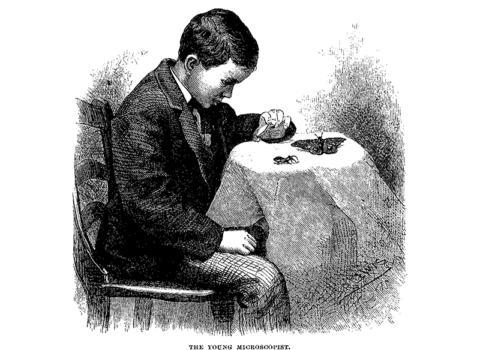It’s been a year since I had lunch in the heart of Paris’s former literary center with Jean-Luc Mélenchon, a left-wing candidate in the upcoming French presidential election. I have fond memories of the occasion. The walls of the café Les Éditeurs are lined with books, and the restaurant is an authentic homage to the 1950s and 60s glory days of Saint-Germain-des-Prés, when the neighborhood was frequented by the renowned authors who dominated the European intellectual scene. In New York, by contrast, public places often use books just to give an impression of seriousness.
In any case, publishing isn’t completely dead in this once bohemian and now posh neighborhood. My French publishing house, Les Arènes, is a five-minute walk away Les Editeurs on rue Jacob, and as for Mélenchon, he’s the author of several political works and is by far the most literary of the five leading presidential candidates. At the time of our meeting, more than a year before the upcoming first round of the 2017 elections, he was displaying his “humanist” side – he made me a gift of three of his books – and I became convinced that he has a more pleasant personality than the one he presents in his sometimes sharp and sarcastic campaign appearances.
I voted for Mélenchon when he was the Front de Gauche (Left Front) party’s candidate in the first election round in 2012 because I liked his anti-finance, anti-capital rhetoric, particularly in the wake of the 2008 worldwide financial crisis. So I was disappointed when he received only 11.1 percent of the vote, and all the more so because Marine Le Pen of the right-wing National Front beat him by seven points. I realized then that there was a weakness in his platform, and that weakness was called Europe. Mélenchon, I suppose, underestimated the power of nationalist tendencies in France, both on the left and on the right, tendencies already demonstrated in the 2005 referendum that rejected the European constitution; and he also misjudged the degree to which Le Pen’s attacks against Europe and the euro would move to the right ordinary people suffering from the austerity dictated by Germany and the Central European Bank.
The former Socialist, unwilling to accompany his party in its increasing shift to a free-market/social-democratic position, broke with the Socialist Party in 2008. But Mélenchon, today an independent candidate of the movement called La France Insoumise (“Unsubmissive France” or FI), no doubt maintains a bit of his European faith, which goes back to his support of François Mitterand, co-founder with Helmut Kohl of the euro and godfather of the disastrous agreement forbidding E.U. member countries to run budgetary deficits greater than 3 percent of gross domestic product. In 2012, as Le Monde somewhat waspishly recalled, Mélenchon didn’t take a stand, preferring “to free himself” from the Treaty of Lisbon, the controversial agreement amending the E.U. treaties, in order to “build another Europe.” After the debt crisis in Greece, Mélenchon, like Le Pen a member of the European Parliament, decisively hardened his position in regard to the German financial establishment and published a rather inflammatory book, Le hareng de Bismarck: Le poison allemande (Bismarck’s Herring: German Poison). After attacking the “odious way the German authorities treated Alexis Tsipras’s new Greek government,” Mélenchon raises his pitch: “As arrogant as ever, Germany has given herself over to brutality, blackmail, and punishments for those who do not assiduously obey the new order of things she has managed to impose.”
Well said, except that Mélenchon still hasn’t been able to describe his position on the euro as clearly as Marine Le Pen, who has pledged to abandon the monetary union and revive French currency should a national referendum permit her to do so. Mélenchon’s plan and its alternate (Plan A: “concerted withdrawal from European treaties” and “negotiation of new rules”; Plan B: “unilateral French withdrawal from European treaties”) make him come off as comparatively equivocal, even though he’s more sincere than Le Pen, who more than any other candidate is vying for alienated voters Melenchon needs to win. “On la change ou on la quitte” (We either change it or leave it), Mélenchon declared, once again, in a Europe 1 broadcast on March 15; the statement sounds like that of a reformer, not a radical. And that assertion opens the door to the cunning Le Pen, allowing her to manipulate the truth at her leftist rival’s expense. During the first debate among the candidates on March 20, Mélenchon brought up the accusations against Marine Le Pen and François Fillon for corruption and for allegedly assigning selected people to fictitious jobs: He ironically noted that voters “are not forbidden to reward the virtuous and to punish those who do not appear to be so.” Le Pen, the true radical when it comes to punishment, replied, “Robespierre’s back.”
I shall respect the rules concerning private conversations – besides, I didn’t take any notes – but it goes without saying that at our meeting I wasn’t able to persuade Mélenchon to adopt a harder line against the euro and against the Mitterandist-Merkelian conception of Europe. I’ll vote for him all the same, though, knowing that Le Pen, like Donald Trump, has the upper hand in winning the allegiance of people hurt by the lies about free trade, open borders, and the libertinism of the great financial institutions — and knowing that it’s a former banker at Rothschild’s, Emmanuel Macron, the independent centrist candidate, who is profiting the most from the political confusion. France needs a patriotic, left-wing nationalism, but only Marine Le Pen, the arch-cynic of the right, seems able to understand what’s blowing in the wind.



